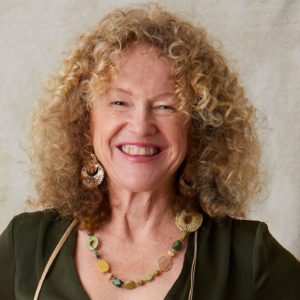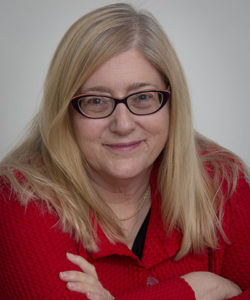Women of a Certain Superpower
My journey as a writer started fifteen years ago and it feels like I’ve taken a long walk on a rough road, wearing the wrong kind of shoes. In print media, I have written a deeply flawed first novel, and a self-published novella. A producer friend of mine read the novella and suggested it would be good as a film. At his urging, I converted the novella to a screenplay, which is a vastly different form. Once I had the screenplay, I thought, “Now what do I do?”
I sent it to people in the film industry and submitted it to two competitions – Women in Film Canada and Australians in Film. The script was shortlisted for both competitions. Encouraging, but what next? Well, nothing, is the answer. How do you get someone to spend millions of dollars turning your script into a movie when you are an obscure woman in her late fifties with no connections, no money to back it, and no real writer’s resume? I lost my nerve.
Fast forward to 2015. I was living in California and wanting to tap into my creative chi. It seemed that everyone in California was working on something creative. If you met a new person, they would tell you they were a producer/director/actor/gong therapist/dog walker. In such a fertile creative field, my writing could bloom again.
Full of optimism, I joined a screenwriter group. Every week, somebody would bring in their writing, and we would read the parts as actors. I had just started writing Girls’ Night Out, my third screenplay, and so I took a couple of scenes into this group. When they started reading it, it was thrilling to hear my story come to life. But something wasn’t quite right.
When I started writing Girls’ Night Out, I knew the protagonist was going to be female, but knowing what I knew about what is marketable, my first thought was to make her twenty-five to thirty-five years of age. But I listened to a Writers’ Masterclass with the wonderful author, Walter Mosley, and one thing that he said really stuck in my brain. He said if you are a marginalised person, you must tell your story, because if you don’t, your story and your history won’t exist.
To hell with what’s marketable. I decided that the main character in this sci-fi adventure was going to be a middle-aged woman, a real woman, a woman with intelligence, agency, and humour. She would have an interesting past and an interesting future. She would be menopausal with all the challenges that entails – hot flushes, weight gain, invisibility, and ageism. She would have a husband with a wandering eye and would get into daily sparring with her young adult children. Then, on an otherwise ordinary day, everything changes. Powers!
I wanted her to have powers and heightened perception, because we women of a certain age have these, if we tap into them. Hot flashes (we call them ‘hot flushes’ in Australia) were an easy choice as a power. It was fun writing about how my protagonist discovers her power of thermokenisis and learns to master it.
We all thought Harry Potter and his invisibility cloak were cool, but if you’re a late middle-aged woman with grey hair, you don’t think it’s cool to be ignored. However, consider the character Miss Marple in the Agatha Christie novels. She is invisible and underestimated, and she uses it – not as a superpower per se – but as a tool to achieve her goals. She listens in on conversations and gathers information that is critical to solving the case. She might be sitting in an armchair knitting or reading, and people just don’t consider her to be present. As a result, she hears all sorts of juicy stuff.
I finished Girls’ Night Out in late 2018. Seeking external approval, I submitted it to competitions and script assessors. Again, I got shortlisted for a couple of competitions. One reviewer said to me, “Mary this is a cool story, incredibly fun and suspenseful, but what makes this script challenging from a commercial point of view is the protagonist. She’s a 59-year-old woman and we know the market for sci-fi films is young men 18 to 30.” One assessor stated, “Middle-aged women don’t like sci-fi.” With all this positive feedback, another existential crisis rose inside me like a kraken.
At that time, I was hanging around at a radio station in California, making a nuisance of myself and learning how to use all the equipment. There was a wonderful woman of a certain age there named Elizabeth Rodeno who taught me everything about how to produce a radio show. She supported my pitch to produce a hosted radio show about the wonderful old radio plays from the 30s, 40s, 50s and 60s, specifically in the genres of crime horror and science fiction. She gave me a timeslot at 9 PM and away I went! The Shiver Show was born.
Learning to produce a radio show meant I also knew 80% of what’s involved in making a podcast. I learned the extra 20% and created a podcast and a radio show called Women of a Certain Age, a hosted, interview-based show. Elizabeth liked the show and gave Women of a Certain Age a regular timeslot on the radio.
As a podcaster, I started listening to other podcasts for education, entertainment, and inspiration. I discovered two excellent podcasts; one called Blackout with Rami Malek and one called Limetown. Both were theatrical or cinematic podcasts; they told a story. I found both podcasts immersive, utilising voice actors, sound effects and music. I decided I would take Girls’ Night Out, my screenplay still sitting in limbo, and turn it into a cinematic podcast.
Converting a screenplay to a radio play is harder than it might sound, because there’s no action in a radio play, and every sound is defined and cued to its source. Sometimes you have to ‘show’ the listener what’s happening with dialogue, and sometimes you have to ‘show’ them with sound effects. I learned how to write this new form of play and discovered that most scriptwriting software doesn’t support the radio play format – it’s too old-fashioned. I mucked around with Final Draft (a scriptwriting software tool) and customised it so it would have all the sound cues.
I finished the radio play in April 2020. Then, after staring at the finished script for a week or two, I mustered my courage and went onto Backstage.com, which is a casting website, and got my voice actors. I did the auditions and cast twenty actors from all over the world – Munich, London, Miami, Toronto, Chicago, and Los Angeles.
I sent the cast members the script and each person recorded their lines remotely. Not a single cast member met their fellow cast members, and yet they created scenes in isolation that, when edited together, were suspenseful, touching, and funny. I edited all the voice parts together and mixed in sound effects and music.
There are hundreds of sound effects in Girls’ Night Out and getting those was an adventure in its own right. I am particularly proud of my main character’s hot flash fireball, which has seven layers of sound. My son, Dan Egan, wrote the theme music. Creating the show was a massive undertaking. There were many days that I wanted to chew my arm off. But I got there in the end and released Girls’ Night Out as a sci-fi adventure in six episodes in July 2022. It is now running on the radio in California too.
All I really want to do is tell a story and have someone listen to it. To me a cinematic podcast is a wonderful way to achieve that, and you can do it on a shoestring if you have the skills. I encourage any frustrated screenwriter, novelist, or writer to consider this approach. If you’ve got a story to tell, and you think it could be a cinematic podcast, but don’t know how to go about it, I’d love to talk to you about it. We should all be Women of a Certain Superpower!


